Preserving Tradition through Partnerships
Information for Landowners
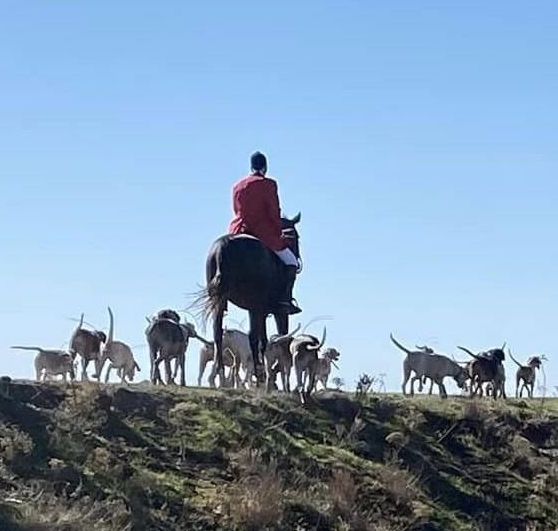
Foxhunting? Here?
Yes! FLH is one of many U.S. hunts in which members enjoy fellowship, beautiful countryside, and the thrill of riding to hounds as they follow the scent of a fox or (more often in our region) a coyote. Hunts play out as you see in the old paintings—with a pack of hounds followed by a huntsman and two or three fields of riders.
As with any activity that involves the pursuit of game, foxhunting depends on access to rural land. Therefore, our landowners are incredibly important to us and we work hard to ensure mutually beneficial relationships with them.
FLH is also proud to support the communities in and near where we hunt. Visiting foxhunters buy fuel and visit local restaurants and shops. We have also participated in community events such as parades.
History
Organized hunting with hounds is one of the oldest sports in recorded history, and the Fort Leavenworth Hunt (FLH) is the only active military-affiliated hunt remaining in the United States. (FLH is a recognized Family Morale, Welfare and Recreation-supported organization.) Countless military leaders, including Generals Patton, Wainright, McNair, and Truscott, honed their riding skills at Fort Leavenworth, many as FLH members or staff.
Organized in 1926 and recognized by the Masters of Foxhounds Association in 1966, FLH hunted at Fort Leavenworth twice a week for decades. Hundreds of spectators followed the hunt in mule-drawn wagons, automobiles, and even by air, with flights scheduled from the Army airfield to coincide with hunts! Learn more about our history here.
Land development associated with the Fort's diverse mission occupies so much of the installation today that hunting "on post" is a significant challenge. Through cooperation with generous landowners who provide access to essential hunt country, FLH is able to continue offering the opportunity to enjoy the sportsmanship, galloping hoofs, sound of the horn, and cry of the hounds that is foxhunting.
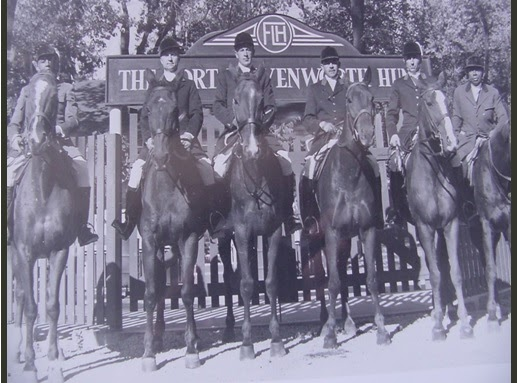
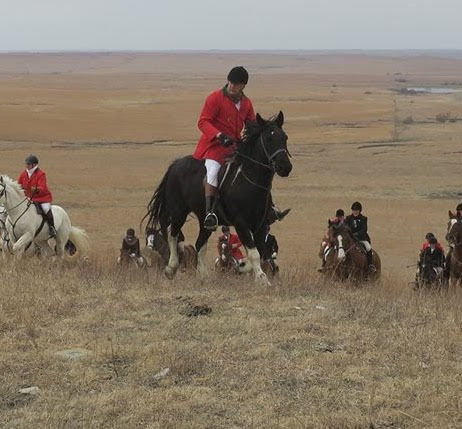
FLH Hunting
FLH proudly follows the traditions of foxhunting, with the object being to provide sport for hounds, riders, and any unmounted spectators by finding and following the scent of quarry until it leads them to the boundary of the huntable area or they lose the scent. When this happens, the huntsman will gather the hounds and "recast" them to find another line or, if the day's hunting is done, will hack them back home/to the starting point.
Throughout the hunt, staff members remain outside the primary groups to ensure hounds do not go into dangerous or off-limits areas. Staff may be mounted or, if on a road, in vehicles.
FLH's hunt season typically goes from October through April, with hound training and exercise occuring over the summer (at our facility on post or by permission on landowner property).
While we do honor tradition, FLH also welcomes riders of all disciplines. Our membership includes military and civilian riders of both English and Western styles, with some members and visitors who choose to ride in Western tack. Learn more about membership here.
Landowner Testimonial
My name is Mark Wagner, and I am part of a family of multigenerational landowners who farm in northwest Leavenworth County. For 30 years or more we have permitted seasonal access to our land to the Fort Leavenworth Hunt (FLH), in support of their mounted fox hunting activities. Throughout that time, we enjoyed a positive experience with the FLH leadership and their members. They were "good neighbors" - always attentive and respectful, and groups of 30 or more riders regularly accessed our properties without any damage to crops, hayfields, or negative impact to livestock or pets. I would encourage rural property owners to meet with FLH leaders to discuss allowing them access to your property for fox hunting, especially if you have issue with nuisance coyotes or other predators.
What does it mean to be a landowner?
Today, FLH primarily hunts on private property generously made available by individual landowners. These properties include Conservation Reserve Program areas, cropland, and land used for raising livestock. In all cases, the landowner decides when and how often FLH may hunt the property.
Both FLH leadership and members understand what a privilege it is to be permitted access to land, and we take our responsibility as "co-stewards" very seriously, treating it with the same care as if it were our own. (This includes alerting landowners to situations such as washouts, downed trees, damaged fences, etc.) In addition to ensuring no damage is done to the properties on which we ride, FLH members have worked with multiple landowners to assist with maintenance or make minor improvements.
We realize liability is a concern when it comes to allowing activities on personal property. In addition to state statutes protecting the sponsor of an equine activity from liability, FLH also requires legally binding hold harmless forms from all participants and carries insurance that explicitly protects landowners. (To date, there have been no liability issues or claims related to FLH activities.)
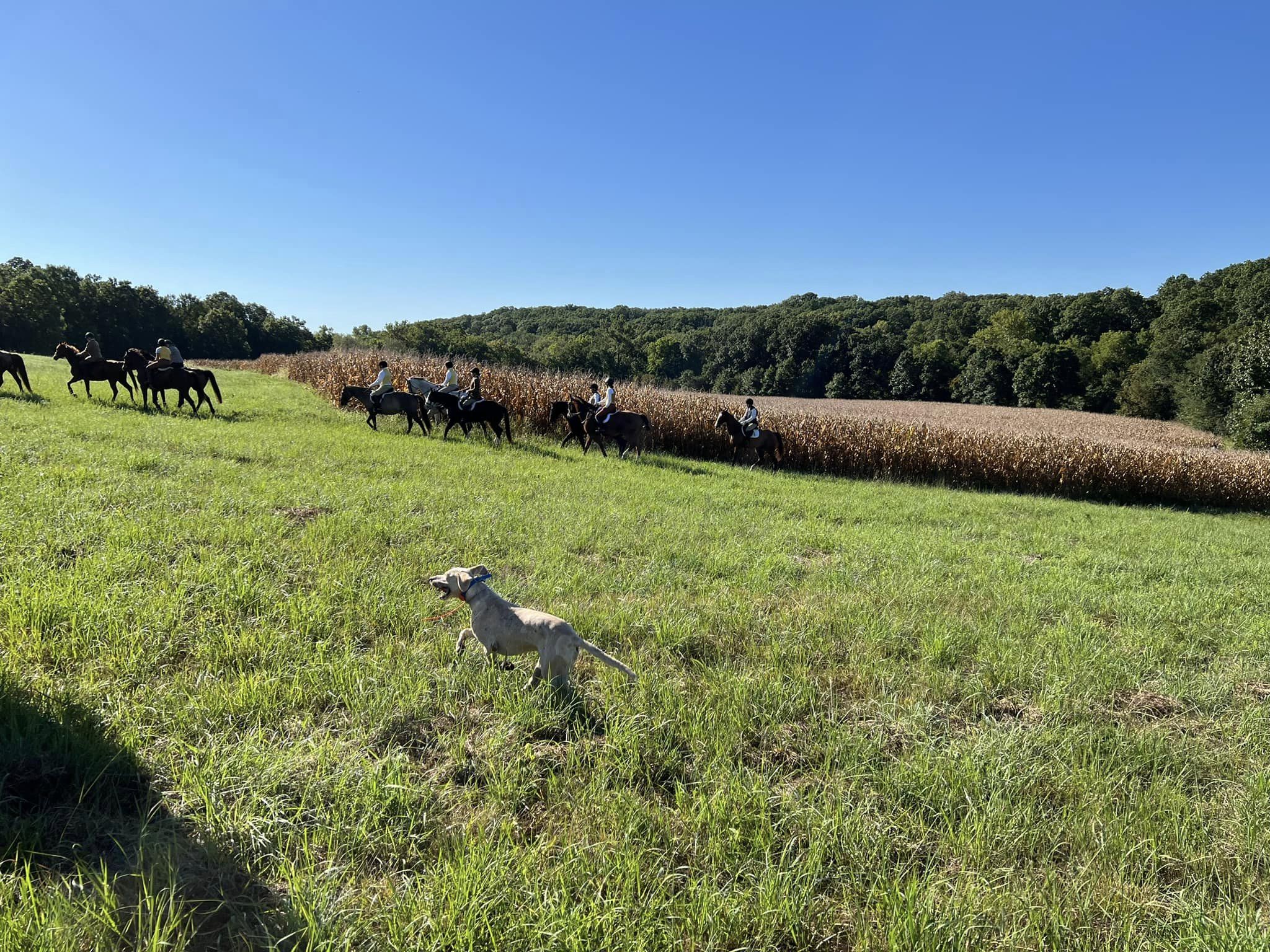
What a Landowner Can Expect
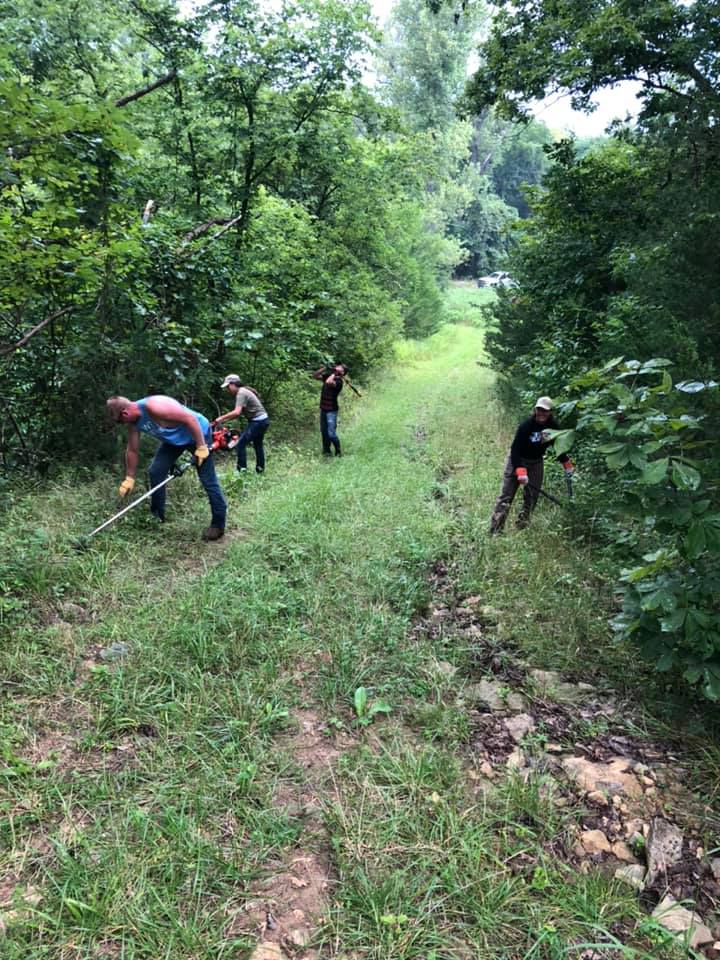
We Do
- Ride only in designated areas. (As we work toward training our hounds to drag hunt, we will be able to define the path the hunt takes.)
- Have staff members leading each group of riders.
- Have staff members helping to monitor/control where hounds go.
- Ensure any gates opened are re-closed.
- Assist with property maintenance as requested by/agreed to with the landowner. (In the past this has included installing or repairing gates, clearing trees, helping with pasture burning, mowing, etc. We've even helped move cattle!)
- Support conservation efforts.
- Invite landowners to ride with us and join FLH social activities.
We Don't
- Trample or damage crops.
- Cause damage by riding or driving on property when ground conditions don't support it.
- Harrass livestock or pets (riders and hounds know to respect boundaries).
- Hunt with firearms.
- Cause game to disappear from hunted areas.
- Access land outside of agreed-to scheduled hunts or property maintenance work days.
- Allow riders to wander freely on the property/away from the guided groups.
- Expect landowners to provide amenities of any kind. (Although, if you have suitable space, we're happy to host a post-hunt meal!)
FLH Leadership
Masters of the Fort Leavenworth Hunt
LTC (Ret) Jim Fain
Ms. Teresa Griffith
If you would like additional information or have land that you would be interested in making available—whether on a regular basis or by sponsoring one or more hunts per season—please contact us at masters@ftleavenworthhunt.org
